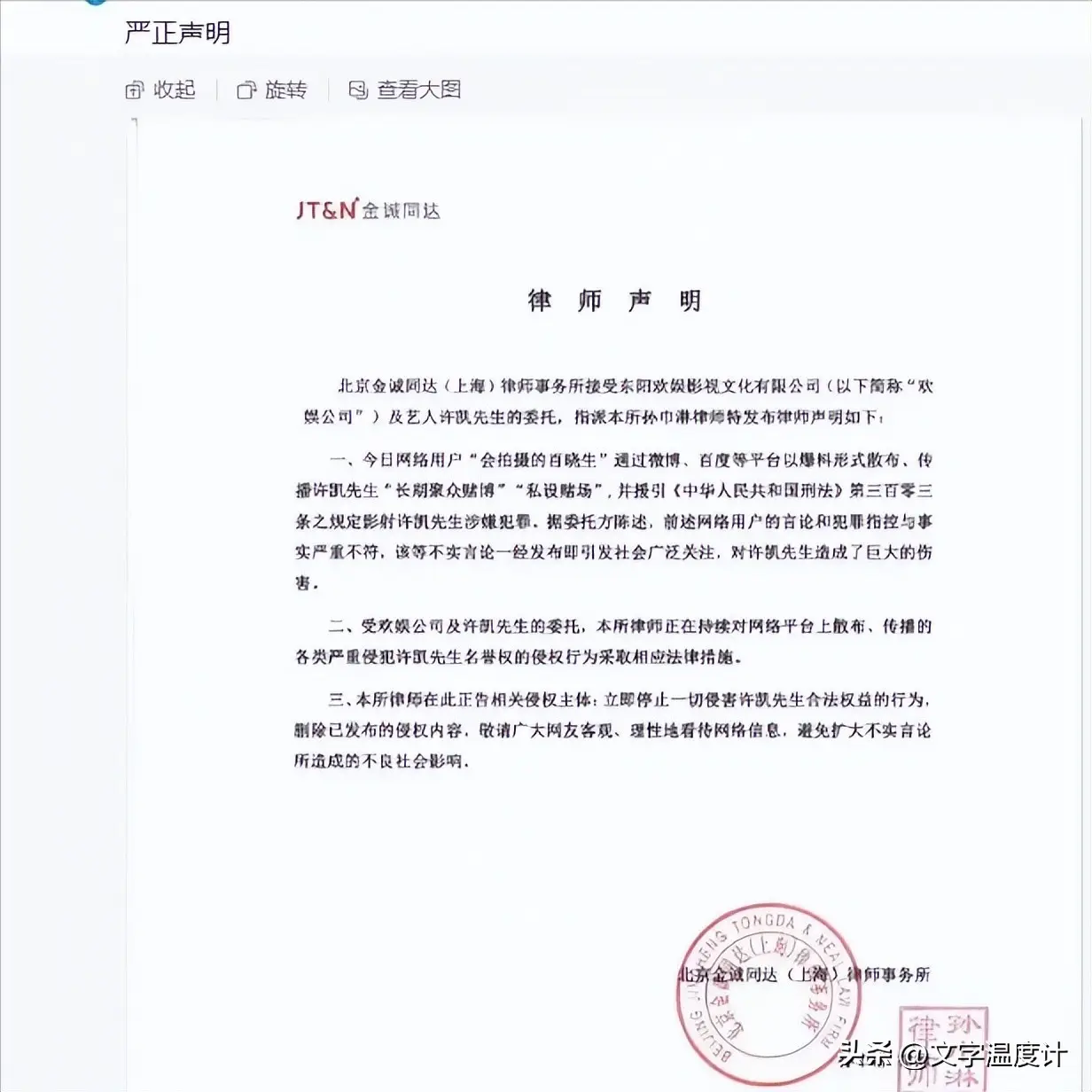The entertainment industry is never short of drama, and the latest headline-grabbing controversy revolves around one of China’s most popular young actors—Xu Kai. Recently, a wave of gambling rumors involving him has spread rapidly across social media, sparking widespread speculation and online debate.

It all started a few nights ago when several blurry screenshots of alleged chat conversations began circulating online, accusing Xu Kai of being involved in illegal overseas gambling. Despite the vague and unverifiable nature of the images, the rumors quickly gained traction. While concerned fans rushed to defend their idol in forums and comment sections, curious onlookers settled in for what they expected to be another celebrity scandal unfolding in real time.
In the public eye, gambling is no small matter—especially for celebrities. A confirmed allegation could severely damage a star’s reputation, or worse, completely derail their career. So when things began to spiral, Xu Kai’s team responded with textbook crisis management. His studio promptly issued a strongly worded statement denying all accusations, calling them “malicious fabrications,” and confirming that legal action was being pursued against those spreading the rumors.
While this swift and professional response may have eased some concerns, it also highlights a growing issue in the entertainment industry: the alarming rise of fake news and rumor-mongering. In recent years, celebrity-related rumors have skyrocketed. Public figures live under a microscope, where even mundane actions can be twisted into clickbait narratives. Last year, a female celebrity shopping with her friend was falsely accused of secretly meeting a wealthy businessman. Another actor eating a simple boxed lunch on set was portrayed as snubbing the crew’s catering services. These baseless claims not only drain the energy of those involved, but also take a toll on the fans who rally to defend them.

At the core of it, much of this chaos stems from the unfiltered nature of today’s digital world. Anyone can publish content; a single unverified post can rack up millions of views within minutes. Worse still, many users tend to react emotionally and share content without verifying its authenticity—unknowingly fueling the spread of misinformation.
In light of the Xu Kai rumors, perhaps it’s time we pause and think critically. Not every trending topic is rooted in fact. As the saying goes, “There’s no smoke without fire,” but sometimes, the “smoke” is simply the result of someone fanning flames with a very large fan. One veteran entertainment manager once put it bluntly: “Most rumors in this business are planted by competitors.”
After all, celebrities are human too. They deserve basic rights to privacy and fair treatment, just like anyone else. While we may admire their performances on screen, it’s important to respect their personal space off camera. If more people approached online gossip with a questioning mindset, perhaps fewer reputations would be unfairly tarnished.
This latest controversy serves as yet another reminder of the importance of media literacy in the internet age. With truth and fiction so easily blurred, we all need sharper critical thinking skills and a little more patience before jumping to conclusions.
At the end of the day, the entertainment world should be about the work—stories that move us, performances that inspire—not the noise surrounding personal lives. Only in a healthier, more respectful environment can meaningful artistry truly thrive.